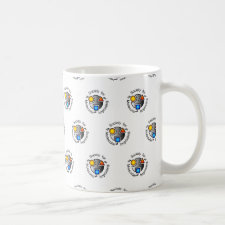
Authors: Zargar T, Jafari MT, Khayamian T
Article Title: Molecularly imprinted graphite spray ionization-ion mobility spectrometry: application to trace analysis of the pesticide propoxur.
Publication date: 2019
Journal: Microchimica Acta
Volume: 186
Issue: (7)
Article Number: 396.
DOI: 10.1007/s00604-019-3467-9
Abstract: A porous graphite sheet modified by a molecularly imprinted polymer (MIP) was directly used as the spray ionization source for ion mobility spectrometry (IMS). Therefore, it was possible to selectively analyze samples extracted by the molecularly imprinted polymer. This obviates the need for the steps of elution, solvent evaporation, dissolution and injection. To prepare the sheet, the graphite surface was first modified by electrodeposition of a molecularly imprinted polypyrrole film. This polypyrrole film was fabricated in a three-electrode electrochemical system using cyclic voltammetry. The electropolymerization of the graphite sheet was carried out with LiClO4 as a supporting electrolyte in the reaction solution. The effects of the amount of monomer, the level of template concentrations, and the time of polymerization on the extraction efficiency of the MIP film were evaluated. The extraction conditions including extraction time, the extraction temperature, the pH values, the salt concentrations, and the stirring rate were also studied. Methanol was selected as the most suitable solvent for both desorption and ionization which occur simultaneously. The pesticide propoxur (acting as a test compound) was extracted from water samples and directly analyzed using IMS. The analytical parameters (working range: 1.0 to 250 ng mL-1; detection limit: 0.3 ng mL-1) indicated that the direct coupling of MIP and IMS has a great potential in terms of reproducibility, and speed of the analysis, while maintaining acceptable sensitivity
Template and target information: propoxur
Author keywords: MIP separation, electropolymerization, Modified graphite sheet, Spray ionization, IMS technique, pesticide, Thin film micro-extraction



Join the Society for Molecular Imprinting

New items RSS feed
Sign-up for e-mail updates:
Choose between receiving an occasional newsletter or more frequent e-mail alerts.
Click here to go to the sign-up page.
Is your name elemental or peptidic? Enter your name and find out by clicking either of the buttons below!
Other products you may like:
 MIPdatabase
MIPdatabase









